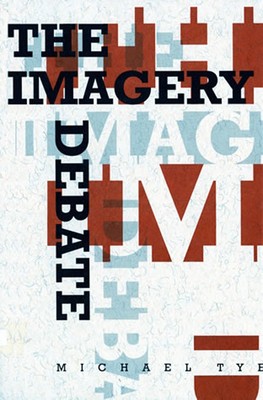
- We will send in 10–14 business days.
- Author: Michael Tye
- Publisher: MIT Press (MA)
- ISBN-10: 0262700735
- ISBN-13: 9780262700733
- Format: 15.3 x 22.9 x 1.1 cm, softcover
- Language: English
- SAVE -10% with code: EXTRA
Reviews
Description
Michael Tye untangles the complex web of empirical and conceptual issues of the newly revived imagery debate in psychology between those that liken mental images to pictures and those that liken them to linguistic descriptions. He also takes into account longstanding philosophical issues, to arrive at a comprehensive, up-to-date view and an original theory that provides answers to questions raised in both psychology and philosophy. Drawing on the insights of Stephen Kosslyn and the work on vision of David Mart, Tye develops a new theory of mental imagery that includes an account of imagistic representation and also tackles questions about the phenomenal qualities of mental images, image indeterminacy, the neurophysiolgical basis of imagery, and the causal relevance of image content to behavior. Tye introduces the history of philosophical views on the nature of mental imagery from Aristotle to Kant. He examines the reasons for the decline of picture theories of imagery and the use of alternative theories, the reemergence of the picture theory (with special reference to the work of Stephen Kosslyn), and the contrasting view that mental images are inner linguistic descriptions rather than pictorial representations. He then proposes his own theory of images interpreted as symbol-filled arrays in part like pictures and in part like linguistic descriptions, addresses the issue of vagueness in some features of mental images, and argues that images need not have qualia to account for their phenomenological character. Tye concludes by discussing the questions of how images are physically realized in the brain and how the contents of images can be causally related to behavior.
EXTRA 10 % discount with code: EXTRA
The promotion ends in 21d.00:27:28
The discount code is valid when purchasing from 10 €. Discounts do not stack.
- Author: Michael Tye
- Publisher: MIT Press (MA)
- ISBN-10: 0262700735
- ISBN-13: 9780262700733
- Format: 15.3 x 22.9 x 1.1 cm, softcover
- Language: English English
Michael Tye untangles the complex web of empirical and conceptual issues of the newly revived imagery debate in psychology between those that liken mental images to pictures and those that liken them to linguistic descriptions. He also takes into account longstanding philosophical issues, to arrive at a comprehensive, up-to-date view and an original theory that provides answers to questions raised in both psychology and philosophy. Drawing on the insights of Stephen Kosslyn and the work on vision of David Mart, Tye develops a new theory of mental imagery that includes an account of imagistic representation and also tackles questions about the phenomenal qualities of mental images, image indeterminacy, the neurophysiolgical basis of imagery, and the causal relevance of image content to behavior. Tye introduces the history of philosophical views on the nature of mental imagery from Aristotle to Kant. He examines the reasons for the decline of picture theories of imagery and the use of alternative theories, the reemergence of the picture theory (with special reference to the work of Stephen Kosslyn), and the contrasting view that mental images are inner linguistic descriptions rather than pictorial representations. He then proposes his own theory of images interpreted as symbol-filled arrays in part like pictures and in part like linguistic descriptions, addresses the issue of vagueness in some features of mental images, and argues that images need not have qualia to account for their phenomenological character. Tye concludes by discussing the questions of how images are physically realized in the brain and how the contents of images can be causally related to behavior.


Reviews